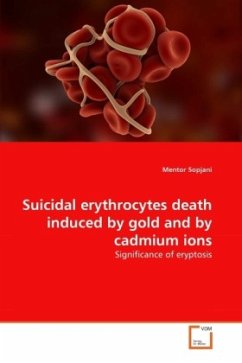
Mechanisms of Beta-cell Death in Diabetes
The Role of Inflammation and the Chemokine CXCL10
Versandkostenfrei!
Versandfertig in 6-10 Tagen
39,99 €
inkl. MwSt.

PAYBACK Punkte
20 °P sammeln!
Diabetes mellitus is a global health problem and its frequency is dramatically rising all over the world. It is a metabolic disease that is characterized by abnormally high levels of glucose in the blood. The main hormone controlling glucose metabolism is insulin. Insulin is released by pancreatic -cells in response to circulating glucose concentrations. Therefore, regulation of blood glucose is dependent on an adequate number of pancreatic -cells that respond appropriately to blood glucose concentrations. In diabetes this regulation fails. Autopsy studies report deficits in -cell mass (collec...
Diabetes mellitus is a global health problem and its frequency is dramatically rising all over the world. It is a metabolic disease that is characterized by abnormally high levels of glucose in the blood. The main hormone controlling glucose metabolism is insulin. Insulin is released by pancreatic -cells in response to circulating glucose concentrations. Therefore, regulation of blood glucose is dependent on an adequate number of pancreatic -cells that respond appropriately to blood glucose concentrations. In diabetes this regulation fails. Autopsy studies report deficits in -cell mass (collective -cell number) ranging from 0 to 65% in type 2 diabetes and 70 100% in type 1 diabetes. Identification of the mechanism underlying this -cell loss is thus crucial to understand the etiology of diabetes. The results of this work elucidate important key players involved in the loss of -cell mass and function and postulate possible new targets for treatment.












